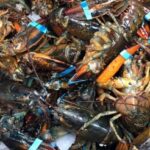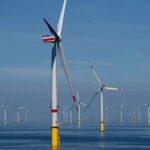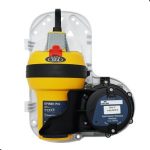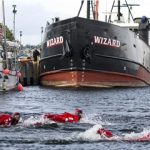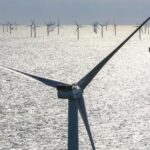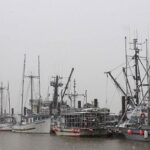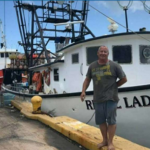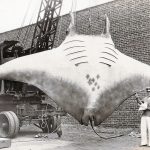Tag Archives: New England Fisheries Management Council
Conservationists seek permanent marine protection for Cashes Ledge off Cape Ann
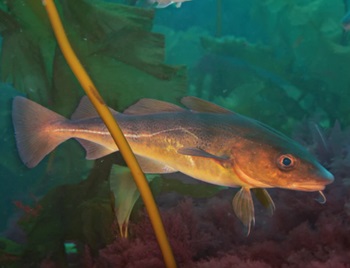 The Conservation Law Foundation, based in Boston, submitted a nomination to the National Oceanic and Atmospheric Administration (NOAA) today to designate Cashes Ledge as a sanctuary. National marine sanctuaries are permanently protected from fishing, shipping and ocean dumping and offer a haven for marine life and an undisturbed ecological site for scientific research. The nomination triggers a yearslong review process that could lead to the 766-square mile site being formally designated. The area is currently under fishing restrictions set by the New England Fisheries Management Council, but the conservation foundation said those limits are always subject to change and leave this habitat vulnerable. more, >>CLICK TO READ<< 08:05
The Conservation Law Foundation, based in Boston, submitted a nomination to the National Oceanic and Atmospheric Administration (NOAA) today to designate Cashes Ledge as a sanctuary. National marine sanctuaries are permanently protected from fishing, shipping and ocean dumping and offer a haven for marine life and an undisturbed ecological site for scientific research. The nomination triggers a yearslong review process that could lead to the 766-square mile site being formally designated. The area is currently under fishing restrictions set by the New England Fisheries Management Council, but the conservation foundation said those limits are always subject to change and leave this habitat vulnerable. more, >>CLICK TO READ<< 08:05
Fishery council considering Mayor Mitchell’s plea to open Northern Edge to scallopers
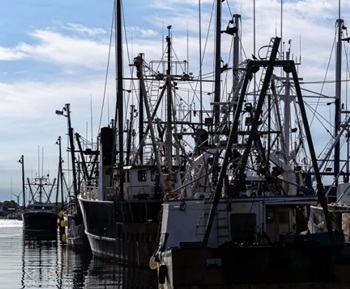 On Tuesday, Mitchell delivered testimony to the New England Fishery Management Council (NEFMC). He cited challenging years ahead for the scallop industry, which is being strained by a slump in prices and fewer days at sea for fishermen; and he stressed the importance of the scallop fishery as a foundational part of the port’s economy. “The industry would benefit greatly by adding these areas to its available fishing grounds.” The region under consideration is the northernmost portion of the broad and productive fishing grounds called Georges Bank. In 1994, the Northern Edge was closed to commercial fishing to protect habitat for spawning cod and other bottom dwelling fisheries. Thirty years later, scallop representatives told the council, groundfish populations like cod have continued to decline while the area has remained locked up to scallopers. more, >>CLICK TO READ<< 06:14
On Tuesday, Mitchell delivered testimony to the New England Fishery Management Council (NEFMC). He cited challenging years ahead for the scallop industry, which is being strained by a slump in prices and fewer days at sea for fishermen; and he stressed the importance of the scallop fishery as a foundational part of the port’s economy. “The industry would benefit greatly by adding these areas to its available fishing grounds.” The region under consideration is the northernmost portion of the broad and productive fishing grounds called Georges Bank. In 1994, the Northern Edge was closed to commercial fishing to protect habitat for spawning cod and other bottom dwelling fisheries. Thirty years later, scallop representatives told the council, groundfish populations like cod have continued to decline while the area has remained locked up to scallopers. more, >>CLICK TO READ<< 06:14
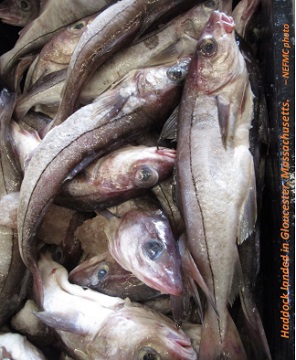
Haddock stock decline prompts catch limits
A low New England haddock stock has prompted regulators to cut the fishing quota of one of the region’s most popular fish. A staple in fish and chips and for fish burgers and home cooks, the amount available from the Gulf of Maine and Georges Bank for 2023 will be more than 80 percent less than the previous year. Prices are relatively high for shoppers, too, with Hannaford, Shaw’s and local fish dealers asking anywhere from $11.99 to $14.99 per pound this month for wild caught Gulf of Maine haddock. Haddock is “subject to overfishing” in the Gulf of Maine while the Georges Bank stock is not, according to NOAA Fisheries. >click to read< 19:02
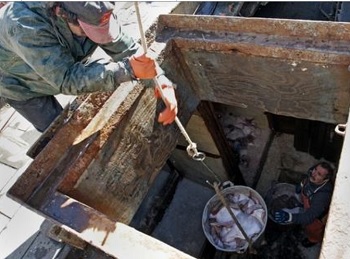
Rafael’s misreported fish ‘disappeared’ at Whaling City auction
A NOAA official has charged that if federal officials were not watching when Carlos Rafael offloaded fish at the Whaling City Display Auction, the catch simply “disappeared.” “If there was no observer on the boat, no dockside monitor, no state environmental police, no NOAA law enforcement officer, the fish would just simply disappear,” NOAA Special Agent Troy Audyatis said, “Thousands upon thousands of fish would simply disappear.” >click to read< 18:23
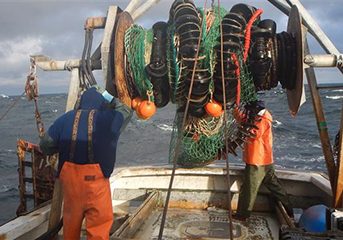
New England, Mid-Atlantic fishery councils ponder switch to electronic vessel trip reporting
The move, which is under an omnibus framework action, would require commercial fishing vessels to fill out all of their vessel trip reports electronically, eliminating the ability to fill out paper forms. Electronic vessel trip reporting (eVTR) has been an established way to submit reports since 2013, according to Karson Coutre of the Mid-Atlantic council. ,,, While the Mid-Atlantic council is the one considering the move to mandatory eVTR, the New England Fisheries Management Council (NEFMC) will also need to consider the implications of transitioning to mandatory electronic reporting. >click to read<16:39
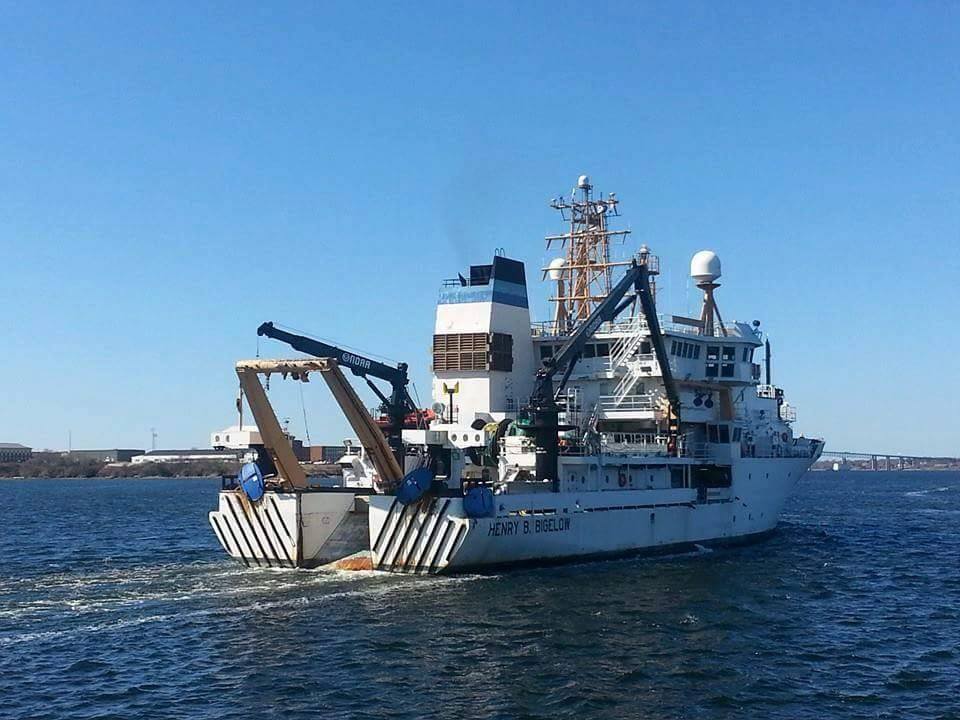
NOAA scientist: Offshore wind projects will likely affect viability of fishery surveys
At a special session of the New England Fisheries Management Council covering offshore wind, Wendy Gabriel, of the Northeast Fisheries Science Center, outlined a wide number of concerns for the organization regarding the development of wind power along the coast. Chief among the concerns was the organization’s ability to continue conducting viable fishery surveys – which provide much of the data that the council uses to establish fishing quotas. “The bottom-line here is, nearly all of the long-term fishery independent surveys that have coverage will be affected,” she said during the session. >click to read<10:06

Lobsterman fear bait shortage with herring quota cut
At the height of the season, Brooklin lobsterman David Tarr spends $600 to $800 a day to bait his traps with herring, pogies or redfish. While some Maine lobstermen swear by herring, Tarr is willing to play the field based on price and availability. Unlike most of his peers, Tarr also has the luxury of a personal bait cooler, which allows him to buy bait when the price is right, salt it himself and store up to 200 barrels of it away — $40,000 of bait, enough for a half-season of fishing — for use during tough times. On Wednesday, one day after the New England Fisheries Management Council voted to recommend slashing the yearly herring quota by 80 percent, Tarr figures tough times are coming. “At a certain point, it is just not worth it,” Tarr said. “I won’t go fishing just to pay for my bait.”>click to read<14:03
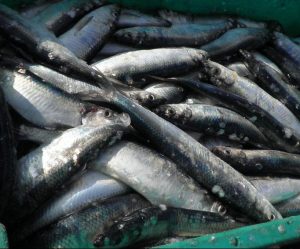
New England: Members Of Commercial Fishing Industry Oppose Proposed Changes To Herring Fishery
Commercial fishing companies are against proposed changes to the Atlantic herring fishery management plan. The New England Fisheries Management Council wants to establish a new process for setting the sustainable harvest limit, referred to as the “acceptable biological catch.” That control rule, which is set every three years, would be in place for a longer period of time. The Town Dock, a Rhode Island-based seafood dealer and processor, said in a statement changing that rule would be problematic for the fishery. >click to read<13:50
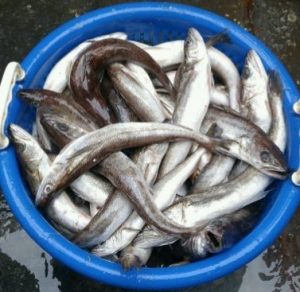
NEFMC: Scallops, Council Approves Framework 29 – Whiting, Approves 2018-2020 Specifics; to Send Amendment 22 to Public Hearing
The Council took two actions today related to small-mesh multispecies, which include two stocks of silver hake and offshore hake –collectively known as “whiting” –and two stocks of red hake. click here to read the notice 16:37
The Council today approved a sweeping package of measures for Framework Adjustment 29 to the Atlantic Sea Scallop Fishery Management Plan. The framework includes specifications for the 2018 scallop fishing year, which begins April 1, as well as default specifications for 2019. It also includes actions related to Closed Area 1 carryover pounds, the Northern Gulf of Maine Management Area, and flatfish accountability measures, among others. click here to read the notice
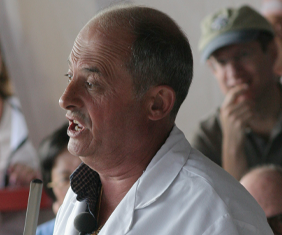
Fishermen voice concerns over fallout from Rafaels crimes
A century’s worth of fishing industry experience traveled from New Bedford to the Viking Hotel on Wednesday to describe the impact on NOAA’s groundfish ban on Carlos Rafael’s vessels. Richie Canastra, an owner of the New Bedford fish auction BASE, sat in front of the New England Fisheries Management Council during a public comment portion of it’s meeting and warned of “many layoffs” that will occur because of the ban. click here to read the story 21:02
Cape Groups say Stop wiping out herring close to shore
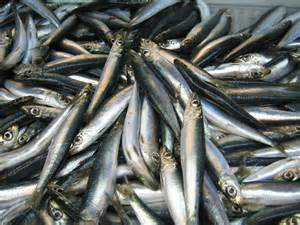 Herring loom large in the history of Cape Cod — it’s no coincidence that pretty much all of our towns have a “Herring River,” nor that one of the first public positions created in Colonial days was “herring warden,” charged with overseeing one of the community’s most important economic resources… In an effort to preserve the species, we have stopped people from scooping up so much as a single herring from our runs. Yet millions of river herring are killed just offshore and denied the chance to reproduce. It makes no sense.This is only one reason the Association to Preserve Cape Cod and the Cape Cod Commercial Fishermen’s Alliance have come together to call on federal regulators to create a buffer zone around the Cape to stop midwater herring trawling in our waters. click here to read the story 21:59:
Herring loom large in the history of Cape Cod — it’s no coincidence that pretty much all of our towns have a “Herring River,” nor that one of the first public positions created in Colonial days was “herring warden,” charged with overseeing one of the community’s most important economic resources… In an effort to preserve the species, we have stopped people from scooping up so much as a single herring from our runs. Yet millions of river herring are killed just offshore and denied the chance to reproduce. It makes no sense.This is only one reason the Association to Preserve Cape Cod and the Cape Cod Commercial Fishermen’s Alliance have come together to call on federal regulators to create a buffer zone around the Cape to stop midwater herring trawling in our waters. click here to read the story 21:59:
New Bedford meeting brings wind, fishing industries together
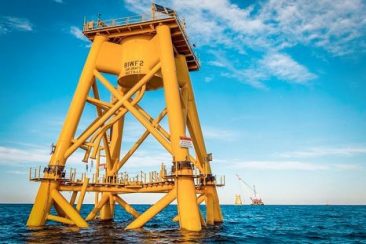 Jim Kendall painted the city’s streets with snow when he articulated how fishermen may feel about offshore wind during a meeting Wednesday that brought both sides together. As a child on SouthCoast, Kendall spent his snows days sledding on the streets. “You just can’t do stuff like that anymore,” he said. He’s seen the same influx in traffic on the ocean in his evolution from fisherman to fishermen representative for Vineyard Wind. Time has added stock limits, marine monuments and the latest is offshore wind. More traffic equates to more difficulty fishing. click here to read the story 11:08
Jim Kendall painted the city’s streets with snow when he articulated how fishermen may feel about offshore wind during a meeting Wednesday that brought both sides together. As a child on SouthCoast, Kendall spent his snows days sledding on the streets. “You just can’t do stuff like that anymore,” he said. He’s seen the same influx in traffic on the ocean in his evolution from fisherman to fishermen representative for Vineyard Wind. Time has added stock limits, marine monuments and the latest is offshore wind. More traffic equates to more difficulty fishing. click here to read the story 11:08
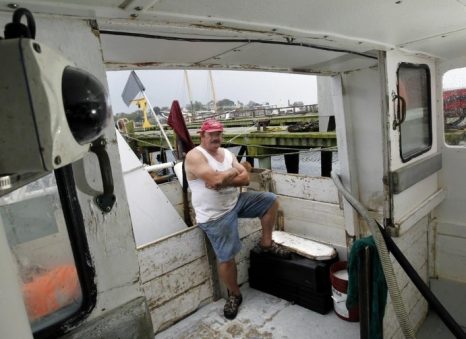
Mass delegation supports putting Carlos Rafael’s forfeiture toward electronic monitoring
John Bullard wants to arm fishing vessels with a smartphone — figuratively speaking. “Nobody has rotary phones anymore, we just assume smartphones are the way we communicate and all the benefits of smartphones we’ve come to expect as normal,” Bullard said. ”(Electronic monitoring) is what we’re going to transition to, but it’s going to take time.” NOAA’s Northeast Regional director said he believes current methods can lead to inaccurate science. Last week, NOAA conducted a fishing stock assessment meeting in New Bedford where similar concerns of bad science emerged. The root of the concern was data from false reports. Electronic monitoring, specifically cameras on vessels, would provide accurate information. click here to read the story 21:39
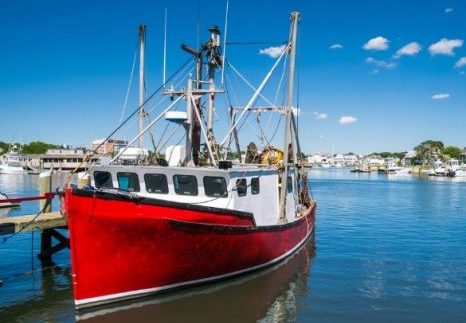
Advancing fishing rule aims to protect deep-sea coral in New England waters
Fishing trawlers bring in an average of $6.4 million annually to Bay State ports from fish scooped off seabeds 600 meters or more below the surface of New England waters. In an effort to save coral on the ocean floor, the New England Fisheries Management Council is advancing a proposed restriction on draggers and trawlers fishing at those depths. The council’s Habitat Committee signed off Tuesday on the proposal, which affect fishing operations in a roughly 25,000 square mile area. If it is passed by the full council it would need to go through the National Marine Fisheries Service, also known as NOAA Fisheries, before it would go into effect. Environmental groups Wild Oceans, Earthjustice, Pew Charitable Trusts and Conservation Law Foundation urged the council’s scientists to study an alternative proposal, which they said would protect more coral than the plan the council advanced. The council agreed to study the conservation groups’ proposal. click here to read the story 16:30
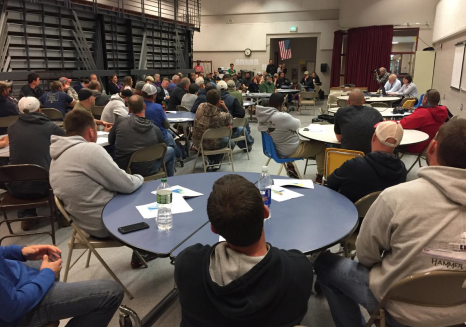
Maine Lobstermen Say They Aren’t Harming Threatened Coral Beds
The fragile deep-sea corals that populate the canyon walls and basins in the Gulf of Maine provide habitat for many species of fish as well as baby lobster, crabs and squid. But the New England Fisheries Management Council has concluded that the northeast coral beds are threatened when they are disturbed by commercial fishing operations and is weighing new restrictions that could affect Maine. The council held a public hearing in Ellsworth Thursday night, where lobstermen spoke in support of a plan that protects coral colonies while still allowing them to haul their traps. Most of the lobstermen who spoke agree that the coral beds in the Gulf of Maine play an important role in the overall health of the marine ecosystem. And most, such as Cranberry Isles fisherman Jack Merrill, think that Maine lobstermen and the coral beds have been getting along well for decades. Click here to read the story 18:21
Lobster fishing in Gulf of Maine coral canyons gets initial approval
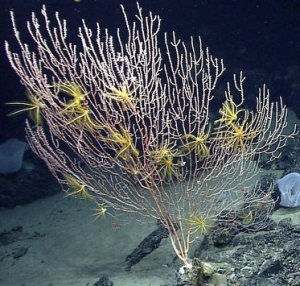 The New England Fisheries Management Council voted 14-1 to ban most fishing in the canyons and plateaus where slow-growing, cold-water coral gardens flourish in the dark waters of the Gulf of Maine. But pleas from Maine lobster fishermen who say a trap ban in fertile fishing grounds off Mount Desert Rock and Outer Schoodic Ridge would cost them millions helped sway an initially resistant council to grant a lobstering exemption. Fishermen also said closing these areas would have led to more traps, and fishing lines, being dropped in nearby waters traveled by endangered right whales, which can suffer injuries or die if they become entangled in lobster fishing lines. Opponents, including environmentalists and some who fish for other species that would not get an exemption in the coral zones,,, click here to read the story. 14:50
The New England Fisheries Management Council voted 14-1 to ban most fishing in the canyons and plateaus where slow-growing, cold-water coral gardens flourish in the dark waters of the Gulf of Maine. But pleas from Maine lobster fishermen who say a trap ban in fertile fishing grounds off Mount Desert Rock and Outer Schoodic Ridge would cost them millions helped sway an initially resistant council to grant a lobstering exemption. Fishermen also said closing these areas would have led to more traps, and fishing lines, being dropped in nearby waters traveled by endangered right whales, which can suffer injuries or die if they become entangled in lobster fishing lines. Opponents, including environmentalists and some who fish for other species that would not get an exemption in the coral zones,,, click here to read the story. 14:50
From the Council – NEFMC Selects Deep-Sea Coral Amendment Preferred Alternatives, Click here to read 15:43
Wake Up, Fishermen! Proposed closure of coral grounds in Gulf of Maine has lobster industry on edge
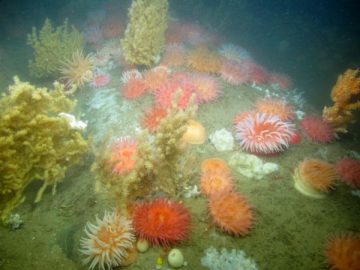 Over the past 10 years, the issue of how to protect endangered whales from getting tangled in fishing gear has been a driving factor in how lobstermen configure their gear and how much money they have to spend to comply with regulations. Now federal officials have cited the need to protect deep-sea corals in a proposal to close some areas to fishing — a proposal that, according to lobstermen, could pose a serious threat to how they ply their trade. “The [potential] financial impact is huge,” Jim Dow, a Bass Harbor lobsterman and board member with Maine Lobstermen’s Association, said Wednesday. “You’re talking a lot of the coast that is going to be affected by it.” The discovery in 2014 of deep-sea corals in the gulf, near Mount Desert Rock and along the Outer Schoodic Ridges, has prompted the New England Fisheries Management Council to consider making those area off-limits to fishing vessels in order to protect the coral from damage. According to Maine Department of Marine Resources, fishermen from at least 15 harbors in Hancock and Washington counties could be affected by the proposed closure. click here to read the story Wake Up, Fishermen! 11:15:30
Over the past 10 years, the issue of how to protect endangered whales from getting tangled in fishing gear has been a driving factor in how lobstermen configure their gear and how much money they have to spend to comply with regulations. Now federal officials have cited the need to protect deep-sea corals in a proposal to close some areas to fishing — a proposal that, according to lobstermen, could pose a serious threat to how they ply their trade. “The [potential] financial impact is huge,” Jim Dow, a Bass Harbor lobsterman and board member with Maine Lobstermen’s Association, said Wednesday. “You’re talking a lot of the coast that is going to be affected by it.” The discovery in 2014 of deep-sea corals in the gulf, near Mount Desert Rock and along the Outer Schoodic Ridges, has prompted the New England Fisheries Management Council to consider making those area off-limits to fishing vessels in order to protect the coral from damage. According to Maine Department of Marine Resources, fishermen from at least 15 harbors in Hancock and Washington counties could be affected by the proposed closure. click here to read the story Wake Up, Fishermen! 11:15:30
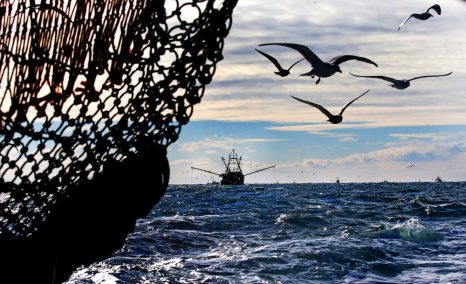
Federal regulators put an end to turbulent season in northern Gulf of Maine scallop fishery
Federal authorities are closing the scallop fishery in the northern Gulf of Maine at 12:01 a.m. Thursday after a contentious three-week season that pitted the interests of part-time, small-boat fishermen from Maine against large, full-time scallop operators. Fisheries regulators announced the closure Wednesday after small-boat fishermen – many of them Maine lobstermen operating 40- to 45-foot boats – met their annual quota of 70,000 pounds. The developments do not apply to the scallop fishery in state waters, which extend to 3 miles from shore. This year’s federal harvest has been contentious because the large, full-time boats are believed to have caught more than 1 million pounds of scallops in the northern Gulf of Maine scallop fishing area, but owing to a quirk in federal rules the fishery could not be closed until the small vessels caught 70,000 pounds. This month’s storms and unseasonable weather had kept the small boats in port, delaying their ability to meet their annual quota and close the area to the larger vessels, who were permitted to continue harvesting large quantities of scallops under federal rules. continue reading the story here 07:57
Cape Cod Fishermen Seek Buffer From Mid Water Trawlers
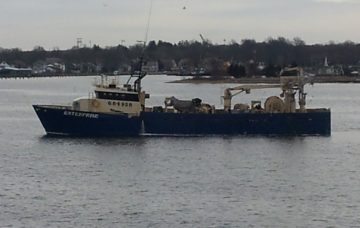 On Aug. 17, the Herring Oversight Committee of the New England Fisheries Management Council voted to send the council two options for establishing a buffer zone prohibiting mid-water trawling off Cape Cod. The zone would extend either 12 miles or 35 miles from shore — significantly farther than the 6-mile zone proposed by the herring industry and closer than the 50-mile mark sought by environmental groups. The council will consider the options when it meets in September. Fishermen have been complaining for years about the industrial-sized ships landing on the back side of Cape Cod, scooping up millions of pounds of herring and leaving, they say, a temporary ocean “bio-desert” in their wake. In 2015, the Cape Cod Commercial Fishermen’s Alliance collected hundreds of comments and individual letters from fisherman about the phenomenon called “localized depletion” — defined as “when harvesting takes more fish than can be replaced locally or through fish migrating into the catch area within a given time period.” Read the story here 16:22
On Aug. 17, the Herring Oversight Committee of the New England Fisheries Management Council voted to send the council two options for establishing a buffer zone prohibiting mid-water trawling off Cape Cod. The zone would extend either 12 miles or 35 miles from shore — significantly farther than the 6-mile zone proposed by the herring industry and closer than the 50-mile mark sought by environmental groups. The council will consider the options when it meets in September. Fishermen have been complaining for years about the industrial-sized ships landing on the back side of Cape Cod, scooping up millions of pounds of herring and leaving, they say, a temporary ocean “bio-desert” in their wake. In 2015, the Cape Cod Commercial Fishermen’s Alliance collected hundreds of comments and individual letters from fisherman about the phenomenon called “localized depletion” — defined as “when harvesting takes more fish than can be replaced locally or through fish migrating into the catch area within a given time period.” Read the story here 16:22
Framework 55 slashes groundfish quotas, halves at-sea monitors, enviros pissed
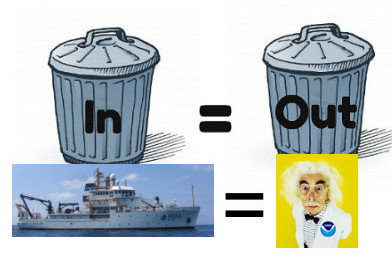 It seems the proposed rule, also known as Framework 55, has a little bit of something for everyone to hate. They have until close of business on April 5 to submit their comments to the National Oceanic and Atmospheric Administration. Environmental groups, such as Oceana, are bitterly criticizing the projected reduction in ASM for groundfish boats to about 14 percent from about 24 percent, saying the rule will “weaken the chances of recovery for this historic fishery.” Fishermen point to the further reductions in what they already consider minuscule catch quotas and say those reductions — combined with the absorption of the costs for ASM — could finally be the management initiative that shutters the Northeast multispecies groundfish fishery for good. Read the rest here 20:10
It seems the proposed rule, also known as Framework 55, has a little bit of something for everyone to hate. They have until close of business on April 5 to submit their comments to the National Oceanic and Atmospheric Administration. Environmental groups, such as Oceana, are bitterly criticizing the projected reduction in ASM for groundfish boats to about 14 percent from about 24 percent, saying the rule will “weaken the chances of recovery for this historic fishery.” Fishermen point to the further reductions in what they already consider minuscule catch quotas and say those reductions — combined with the absorption of the costs for ASM — could finally be the management initiative that shutters the Northeast multispecies groundfish fishery for good. Read the rest here 20:10
Environmentalists, Fishermen At Odds Over Turning Cashes Ledge Into National Monument
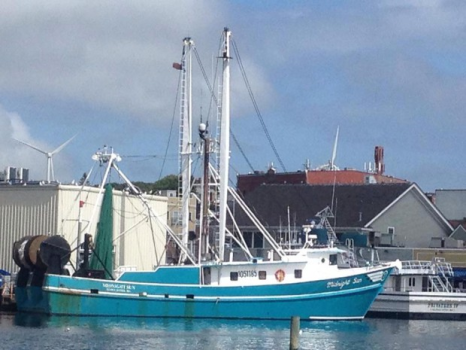 As some New England fishermen struggle under intense quota cuts, the industry is fearing another political move that could prove to have devastating consequences. There is an effort to designate Cashes Ledge — a historically important fishing area — as a national marine monument. This would require a presidential order and would effectively close the area to all commercial activity. About 80 miles off the coast of Cape Ann, a cold-water kelp forest grows from the tip of a ridge that rises from the ocean floor known as Cashes Ledge. Audio, Read the rest here 17:12
As some New England fishermen struggle under intense quota cuts, the industry is fearing another political move that could prove to have devastating consequences. There is an effort to designate Cashes Ledge — a historically important fishing area — as a national marine monument. This would require a presidential order and would effectively close the area to all commercial activity. About 80 miles off the coast of Cape Ann, a cold-water kelp forest grows from the tip of a ridge that rises from the ocean floor known as Cashes Ledge. Audio, Read the rest here 17:12
Sunday Read: Two Fishing Industry articles written by the late Jim O’Malley show how far we have not come.
Jim O’Malley, (whom has since passed away) member of the New England Fisheries Management Council and Executive Director of the East Coast Fisheries Federation, has been involved in fisheries issues at the national and international level from the pre-Magnuson era. In this presentation ( click here, Finding a Balance Between Economy and Ecosystem) he reflects on what is becoming a growing concern among industry members, responsible scientists and managers; the misuse of information to demonize the commercial fishing industry. – It was written in 1999. What has changed? Nothing! Read From Science to Illusion: Mathematics in Fishery Management written in 1998 (click here) 12:13
Fisheries observer program spawns more questions
 The fisheries observer program that looms over the industry in the Northeast won’t go out for public comment until at least December, the New England Fisheries Management Council decided Tuesday. Years in the making, the preliminary draft of the measure numbers about 500 pages, testimony to the complexity of the effort. Then there is the cost, which the council staff researched and broke down. It detailed the costs of what the industry will have to pay, and what it will cost the government. Read the rest here 09:24
The fisheries observer program that looms over the industry in the Northeast won’t go out for public comment until at least December, the New England Fisheries Management Council decided Tuesday. Years in the making, the preliminary draft of the measure numbers about 500 pages, testimony to the complexity of the effort. Then there is the cost, which the council staff researched and broke down. It detailed the costs of what the industry will have to pay, and what it will cost the government. Read the rest here 09:24
State leaders express concern about NOAAs “oppressive” observer funding decision
 The Baker-Polito administration sent an letter to federal partners Monday expressing “serious concern” about the requirement, and urging their support in covering the costs of the At-Sea-Monitoring (ASM) program for the Northeast fishery, according to a news release from the governor’s office. The letter encourages NOAA Fisheries to prove the cost-effectiveness of the “burdensome” monitoring program and support federal funds to pay for the monitoring. It follows a request from the New England Fisheries Management Council to suspend ASM and evaluate the program’s effectiveness, according to the release. Read the rest here 08:30
The Baker-Polito administration sent an letter to federal partners Monday expressing “serious concern” about the requirement, and urging their support in covering the costs of the At-Sea-Monitoring (ASM) program for the Northeast fishery, according to a news release from the governor’s office. The letter encourages NOAA Fisheries to prove the cost-effectiveness of the “burdensome” monitoring program and support federal funds to pay for the monitoring. It follows a request from the New England Fisheries Management Council to suspend ASM and evaluate the program’s effectiveness, according to the release. Read the rest here 08:30
Regulators consider changes to herring catch limits. Because.
 The New England Fisheries Management Council is working on an amendment to the existing rules that is designed to make sure future catch limits are based on “scientific uncertainty” and the status of the herring stock, according to federal documents. The document is up for public comment now and could be approved sometime in the latter half of this year, said Lori Steele, a fishery analyst for the council. Atlantic Herring are not overfished and overfishing is not occurring, according to ASMFC Read the rest here 20:01 ASMFC Herring page
The New England Fisheries Management Council is working on an amendment to the existing rules that is designed to make sure future catch limits are based on “scientific uncertainty” and the status of the herring stock, according to federal documents. The document is up for public comment now and could be approved sometime in the latter half of this year, said Lori Steele, a fishery analyst for the council. Atlantic Herring are not overfished and overfishing is not occurring, according to ASMFC Read the rest here 20:01 ASMFC Herring page






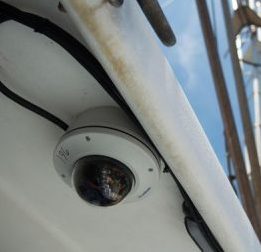
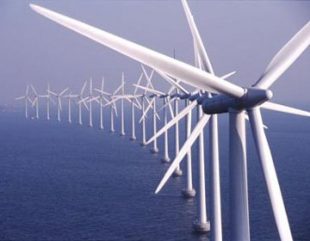
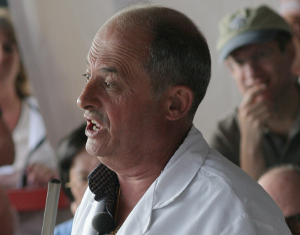
 Dozens of local fisherman, from Maine, Massachusetts, Rhode Island and even New Orleans – most wearing bright orange “Who Fishes Matters” shirts – joined voices to produce a wail of dismay over regional fishing policies that they believe are eradicating both the fish and community-based fishing. “Who Fishes Matters” is a slogan of the North Atlantic Marine Alliance. Fishermen like Ed Barrett, skipper of the Plymouth-based fishing vessel (F/V) Phoenix, whose voice cracked as he spoke outside the conference room after a large group of fisherman had walked out of a meeting of the New England Fisheries Management Council (NEFMC).
Dozens of local fisherman, from Maine, Massachusetts, Rhode Island and even New Orleans – most wearing bright orange “Who Fishes Matters” shirts – joined voices to produce a wail of dismay over regional fishing policies that they believe are eradicating both the fish and community-based fishing. “Who Fishes Matters” is a slogan of the North Atlantic Marine Alliance. Fishermen like Ed Barrett, skipper of the Plymouth-based fishing vessel (F/V) Phoenix, whose voice cracked as he spoke outside the conference room after a large group of fisherman had walked out of a meeting of the New England Fisheries Management Council (NEFMC).  Fishermen and the public came to the Council meeting to provide input on the fleet diversity amendment to the New England groundfish Catch Share policy only to be shut down by the Chair of the Council. When I asked the Council Chairman Terry Stockwell if he could allow time for the group of fishermen, students, and hospital representatives to testify he said “no”.
Fishermen and the public came to the Council meeting to provide input on the fleet diversity amendment to the New England groundfish Catch Share policy only to be shut down by the Chair of the Council. When I asked the Council Chairman Terry Stockwell if he could allow time for the group of fishermen, students, and hospital representatives to testify he said “no”. 


























